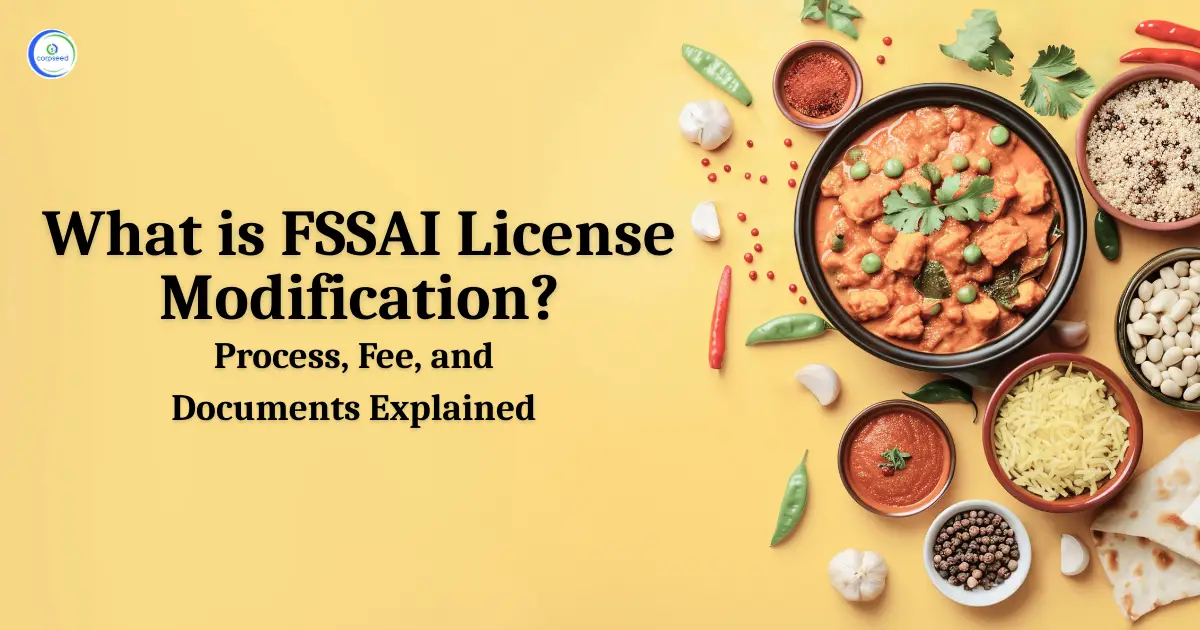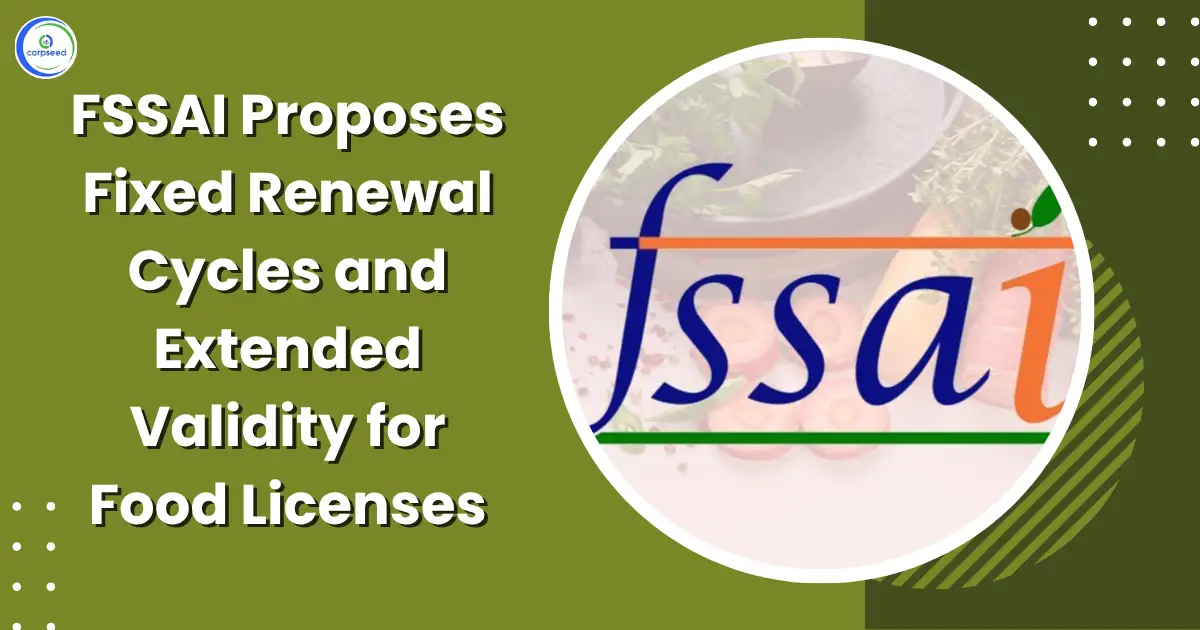The food industry plays a vital role in ensuring that safe, hygienic, and high-quality food reaches consumers. To regulate and monitor this, the Food Safety and Standards Authority of India (FSSAI) has laid down clear guidelines for every Food Business Operator (FBO). An FBO is any individual or entity involved in the food supply chain, whether it is manufacturing, processing, storage, distribution, retail, catering, or import.
The responsibilities of a Food Business Operator are not just limited to producing food; they also extend to maintaining hygiene, following regulatory compliance, ensuring consumer safety, and building trust in the marketplace. Every FBO must obtain an FSSAI License or Registration to operate legally in India and follow the standards set under the Food Safety and Standards Act, 2006.
Table of Contents
--------------Blog Contact Form-------------
Who is a Food Business Operator (FBO)?
A Food Business Operator (FBO) refers to any person or organization engaged in activities related to food supply, including:
- Food manufacturers and processors
- Food distributors and transporters
- Retailers, wholesalers, and suppliers
- Cloud kitchens, restaurants, and catering services
- Importers and exporters of food products
- Storage units and warehouses handling food
According to FSSAI, every FBO, whether small or large, must obtain a valid FSSAI license/registration based on turnover, scale, and nature of the business. This ensures that all food businesses follow the same food safety and hygiene standards.
Importance of Food Business Operators in Food Safety
Food safety is a growing concern in India due to the rising cases of food adulteration, contamination, and poor hygiene. Here’s why the role of FBOs is crucial:
- Public Health Protection: FBOs ensure that food is free from contaminants, harmful additives, and pathogens.
- Legal Compliance: They comply with FSSAI rules and avoid penalties or license cancellation.
- Consumer Trust: By adhering to food safety practices, FBOs build long-term credibility and consumer loyalty.
- Standardization: They maintain consistency in quality and labeling across the food supply chain.
- Economic Growth: Safe and high-quality food helps boost exports, supports trade, and strengthens India’s food industry.
Legal Framework Governing Food Business Operators
In India, FBOs operate under a strong regulatory framework led by FSSAI. The following laws and guidelines define the legal structure:
- Food Safety and Standards Act, 2006: The primary law that governs food safety in India.
- Food Safety and Standards Regulations, 2011: Guidelines related to hygiene, labeling, licensing, and packaging.
- FSSAI Licensing and Registration Regulations, 2011: Ensures that all FBOs are licensed/registered.
- Packaging and Labelling Regulations: Mandates proper display of nutritional value, ingredients, allergens, and expiry dates.
- Good Manufacturing Practices (GMP) & Good Hygiene Practices (GHP): Ensures food is manufactured in a hygienic and safe environment.
Responsibilities of Food Business Operator (FBO)
The responsibilities of a food business operator are diverse and encompass several aspects of food safety, hygiene, and compliance. These responsibilities are vital to meet the requirements of the FSSAI License and ensure consumer protection.
1. Ensuring Food Safety
An FBO must guarantee that all food products are safe for consumption. This involves:
- Implementing proper hygiene practices during storage, processing, and handling of food.
- Preventing contamination through regular cleaning and sanitization of equipment and premises.
- Using safe ingredients that meet regulatory standards.
- Conducting regular quality checks and audits to ensure compliance with safety standards.
2. Maintaining Hygiene and Sanitation
Hygiene and sanitation are non-negotiable responsibilities for any FBO. This includes:
- Maintaining cleanliness in the kitchen, storage areas, and dining spaces.
- Ensuring that all employees follow personal hygiene practices, including handwashing and wearing protective gear.
- Regular pest control to prevent contamination by rodents, insects, or other pests.
- Proper waste management to avoid environmental hazards and contamination.
3. Compliance with Legal Standards
A significant responsibility of FBOs is to comply with all food safety laws and regulations, including:
- Obtaining a valid FSSAI License before commencing operations.
- Ensuring that all products are labeled correctly with ingredients, manufacturing date, expiry date, and FSSAI registration number.
- Adhering to packaging, storage, and transportation regulations.
- Cooperating with inspections and audits conducted by the FSSAI or other regulatory bodies.
4. Employee Training and Awareness
Employees play a critical role in food safety. FBOs are responsible for ensuring that their staff is well-trained and aware of hygiene and safety standards. This includes:
- Regular training sessions on food handling, safety protocols, and hygiene practices.
- Educating staff about foodborne illnesses and preventive measures.
- Monitoring staff adherence to safety procedures to minimize risks.
5. Traceability and Record-Keeping
Maintaining accurate records is essential for transparency and accountability. Responsibilities in this area include:
- Keeping detailed records of suppliers, ingredient sourcing, and inventory management.
- Tracking batch numbers, production dates, and distribution details to ensure traceability in case of product recalls.
- Documenting cleaning schedules, quality checks, and pest control measures.
6. Consumer Awareness and Grievance Redressal
FBOs are responsible for ensuring that consumers are informed and can raise complaints when necessary. This involves:
- Providing clear labeling and product information to enable informed choices.
- Establishing a grievance redressal mechanism for complaints regarding quality, safety, or service.
- Addressing customer feedback promptly and taking corrective action when needed.
Penalties for Non-Compliance by FBOs
Ignoring the responsibilities of a Food Business Operator can lead to serious consequences, such as:
- Monetary Penalties: Heavy fines ranging depending on the violation.
- License Suspension or Cancellation: Businesses operating without compliance may lose their FSSAI license.
- Product Recall: Unsafe food may be recalled from the market, damaging brand reputation.
- Imprisonment: Severe violations like food adulteration may lead to imprisonment.
- Loss of Consumer Trust: Once consumer confidence is lost, rebuilding brand value becomes difficult.
Conclusion
The responsibilities of Food Business Operators (FBOs) go beyond obtaining an FSSAI license. They involve maintaining hygiene, following packaging and labeling rules, ensuring food quality, and addressing consumer concerns. With India’s growing food industry, the accountability of FBOs has increased significantly.
Every FBO, whether a small street vendor or a large multinational food company, must follow FSSAI guidelines to ensure safe and healthy food for consumers. Compliance not only protects public health but also boosts the credibility, growth, and sustainability of the food business.
In the end, the role of Food Business Operators is crucial in shaping India’s food safety ecosystem and ensuring that the promise of "safe food for all" becomes a reality.
This portion of the site is for informational purposes only. The content is not legal advice. The statements and opinions are the expression of author, not corpseed, and have not been evaluated by corpseed for accuracy, completeness, or changes in the law.
BOOK A FREE CONSULTATION
Get help from an experienced legal adviser. Schedule your consultation at a time that works for you and it's absolutely FREE.









